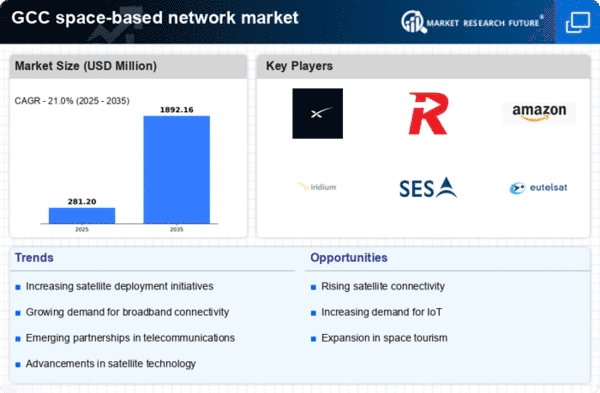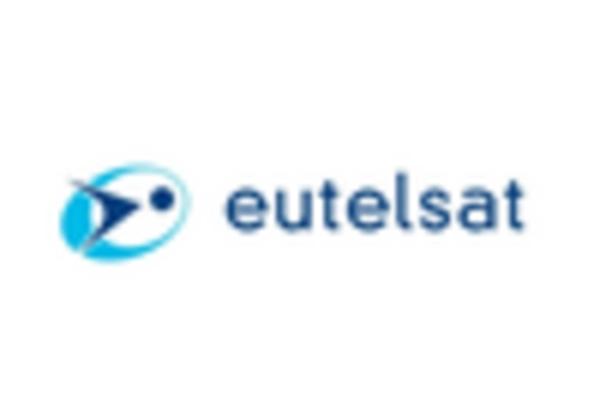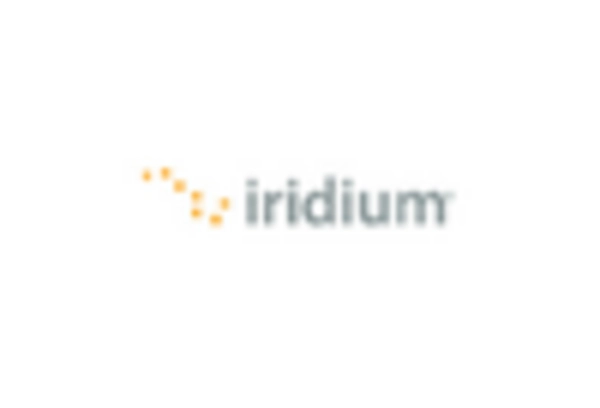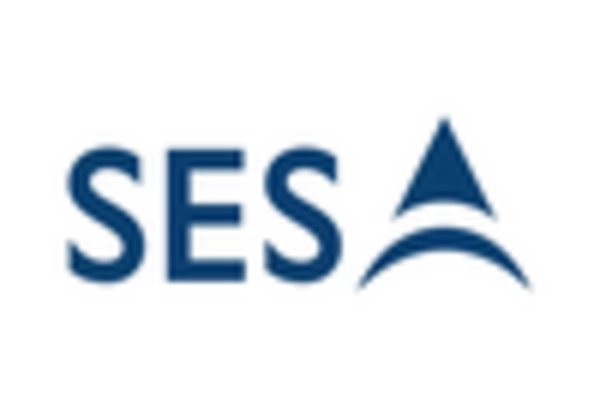Rising Demand for Connectivity
The space based-network market in the GCC is experiencing a notable surge in demand for enhanced connectivity solutions. This demand is driven by the increasing reliance on digital services across various sectors, including telecommunications, transportation, and emergency services. As businesses and governments seek to improve their communication infrastructure, the market is projected to grow at a CAGR of approximately 15% over the next five years. The need for reliable and high-speed internet access in remote areas further fuels this growth, as traditional terrestrial networks often fall short. Consequently, the space based-network market is positioned to play a crucial role in bridging connectivity gaps, thereby supporting economic development and social progress in the region.
Increased Focus on National Security
National security concerns are increasingly influencing the space based-network market in the GCC. Governments are recognizing the strategic importance of satellite communications for defense and security operations. This has led to increased investments in secure satellite networks that can support military and emergency response communications. The market is anticipated to expand by 18% as nations prioritize the development of resilient and secure communication infrastructures. Additionally, the collaboration between defense agencies and private sector companies is likely to foster innovation in secure satellite technologies, further solidifying the role of the space based-network market in enhancing national security capabilities.
Regulatory Support and Policy Frameworks
The regulatory environment in the GCC is evolving to support the growth of the space based-network market. Governments are implementing favorable policies that encourage investment in satellite technology and infrastructure development. This includes streamlined licensing processes and incentives for private sector participation. As a result, the market is likely to see an influx of new entrants and innovations, which could enhance competition and service offerings. Recent initiatives suggest that regulatory bodies are prioritizing the establishment of a robust framework that aligns with international standards, potentially leading to a 30% increase in market participation by 2026. Such regulatory support is essential for fostering a conducive environment for the space based-network market.
Strategic Partnerships and Collaborations
Strategic partnerships among key stakeholders are becoming increasingly prevalent within the space based-network market in the GCC. These collaborations often involve government entities, private companies, and international organizations, aiming to leverage shared resources and expertise. For instance, joint ventures between satellite operators and telecommunications firms are facilitating the deployment of advanced satellite systems. Such partnerships not only enhance operational efficiency but also reduce costs associated with infrastructure development. The market is expected to witness a 20% increase in collaborative projects by 2027, indicating a strong trend towards cooperative efforts that can accelerate innovation and service delivery in the space based-network market.
Technological Advancements in Satellite Systems
Technological advancements are significantly impacting the space based-network market in the GCC. Innovations in satellite technology, such as high-throughput satellites (HTS) and low Earth orbit (LEO) systems, are enhancing the capabilities of satellite communications. These advancements enable faster data transmission and improved coverage, which are critical for meeting the growing demands of consumers and businesses. The market is projected to grow by 25% as these technologies become more widely adopted. Furthermore, the integration of artificial intelligence and machine learning in satellite operations is expected to optimize resource allocation and enhance service reliability, thereby driving further growth in the space based-network market.

















